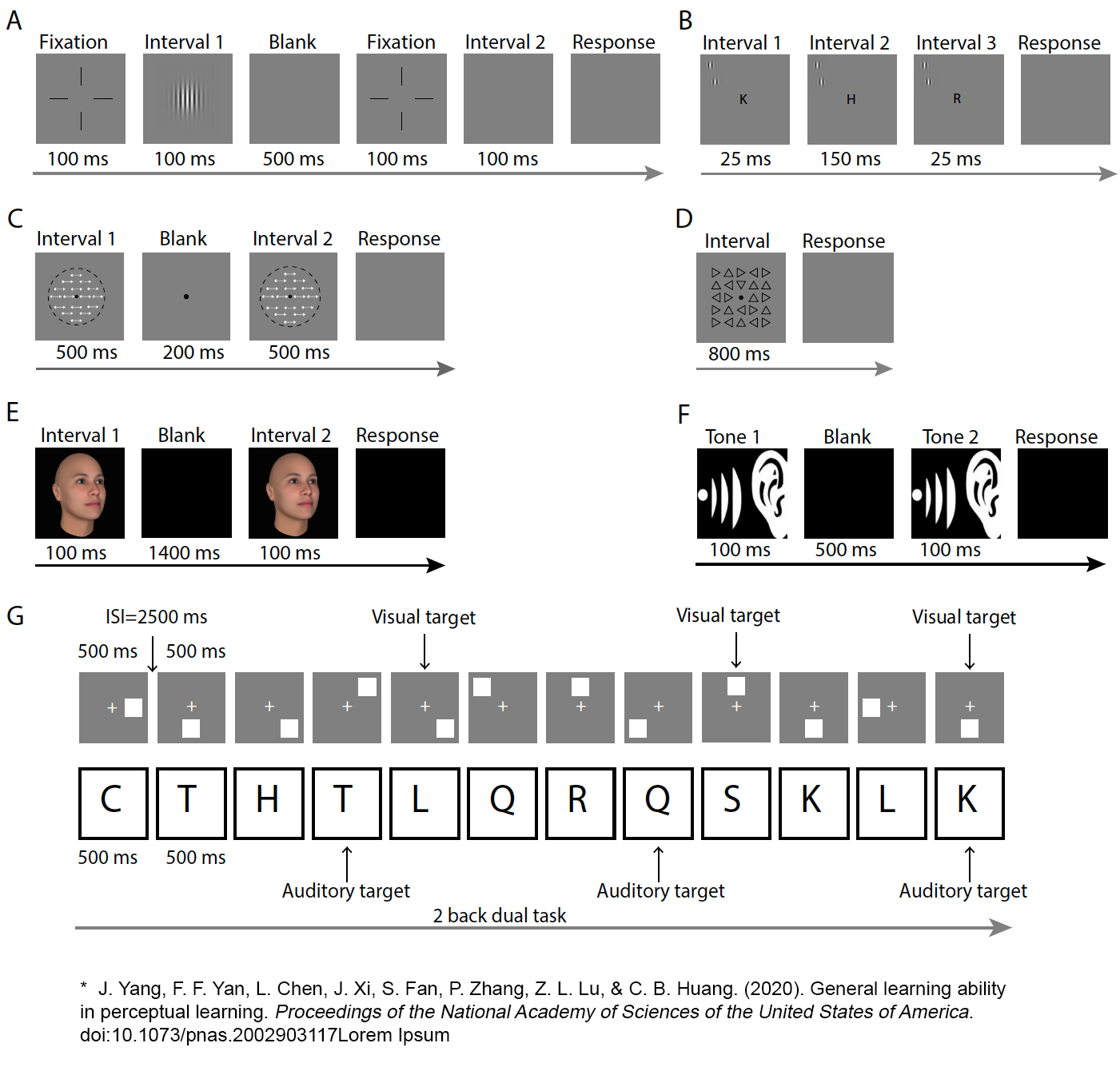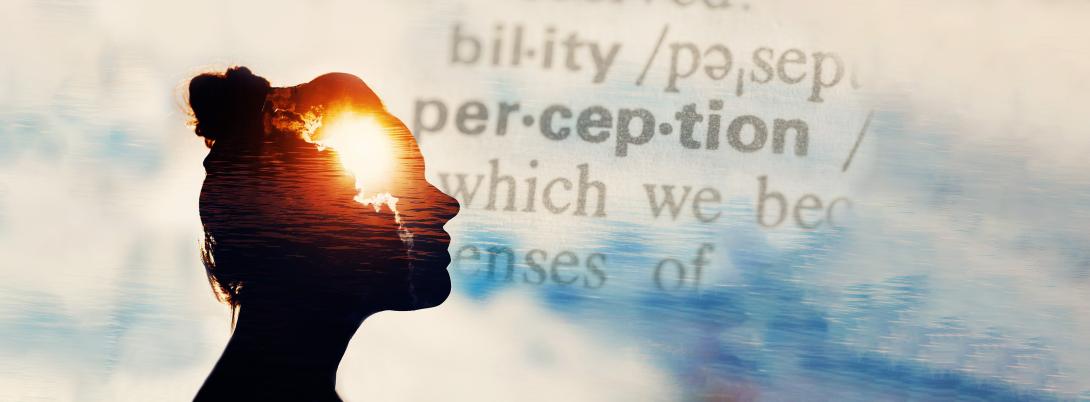Why do some people become experts in their fields while others don’t? There are many factors to this answer, but for a long time, scientists had thought differences in individuals’ abilities to perceive visual, auditory and other external information was not one of them. Individual variability in perceptual learning had long been considered random fluctuations or “noise” by scientists.
But a research team led by NYU Shanghai’s Chief Scientist and Associate Provost for Sciences Professor Lu Zhong-Lin and Professor Huang Chang-Bing in the Institute of Psychology at the Chinese Academy of Sciences has determined that individual differences in general perceptual learning ability do indeed affect a person’s ability to excel in specific tasks.
Their findings were published in an article entitled “General Learning Ability in Perceptual Learning” in Proceedings of the National Academy of Sciences of the United States of America (PNAS) on July 23, with graduate student Yang Jia as the first author.
“When selecting candidates for jobs that require perceptual prowess, such as recruiting airplane pilots, it’s important to distinguish between who are worth investing in training and who are not. General perceptual learning ability could provide a criterion to help sort out the best learners who are more likely to perform better in learning perceptual skills,” Lu said.
Lu stressed that these findings have applications beyond the identification of potential elite learners. “It can also help design better rehabilitation plans for patients,” Lu said. “For example, when treating eye diseases, we can use a small set of training tasks to test the patients’ visual learning ability to decide whether the training is effective and design the optimal treatment plan for each individual patient.”
The research team recruited 49 participants in Beijing to perform seven different perceptual learning tasks for 35 consecutive days. Each participant completed about 23, 720 trials. The number of tasks, number of participants, and number of trials included in the study were unprecedented. “Previous research on perceptual learning mostly focused on a single task, but perceptual expertise requires training in multiple tasks in real life. Expert meteorologists are able to extract weather information from dynamic satellite images because they can perceive and analyze many aspects of the complex imagery through years of practice. In other words, they are highly skilled in many different perceptual tasks. '' Lu said. “We are the first to train the same participants in a wide range of tasks in one study, which can better simulate reality.”
The big sample size also made the research more challenging. Lu said he had been envisioning a study of this scale for more than ten years but never before got a chance to make it happen because of the difficulty of persuading dozens of people to stay in an experiment for more than a month without interruption. “I really appreciate the support of all the study participants and the great team effort on collecting this high-quality big data,” Lu said.
The seven tasks participants performed included visual, auditory, and working memory training (see figure 1). Each task was trained in five consecutive daily sessions lasting around one hour, for a total of 35 days. Researchers used a number of data analytics techniques, including multivariate regression, fixed effect model, and least absolute shrinkage and selection operator (LASSO) regression analysis to analyze the data they had collected.

Figure 1. A. Contrast detection. Participants were required to judge whether the target appeared in the first or the second interval; B. Vernier offset discrimination. Participants were required to report the letter (H or N) for fixation control and then to report whether the lower Gabor was to the left or right of the upper Gabor; C. Global motion discrimination. Participants were asked to judge whether the dots in the two intervals moved in the same direction or not; D. Visual shape search. Participants were required to judge whether the target (with a downward orientation) was present or absent; E. Face view discrimination. Participants were asked to make a judgment of the orientation of the second face relative to the first face; F. Auditory frequency discrimination. Participants were required to judge whether the higher tone was present in the first or second interval; G. Audiovisual N-back working memory. Participants were asked to report the visual and auditory stimuli which appeared repetitively.
The researchers found that participants’ initial performance level in the tasks and the difficulty levels of the tasks themselves significantly influenced their learning rates across the tasks. But after controlling the first two factors of initial performance and task difficulty mathematically, participants’ performance was still significantly influenced by individual differences in the ability to acquire skills regardless of the task, which provided strong evidence for the existence of a general learning ability in perceptual learning.
The team also gathered data on participants' IQ and personality to identify the personality traits underlying the individual differences. They found that high IQ, extraversion, and openness scores were linked to better learning ability, while high scores in neuroticism, agreeableness and conscientiousness caused negative effects on perceptual learning.
Lu said that this paper would be only the first of a series of studies and analyses based on this hard-won dataset. “We have detected a number of other very interesting phenomena in the data and are applying more advanced data analytical techniques to better understand the observations,” Lu said.
This research is a collaboration of Chinese Academy of Sciences, the University of Chinese Academy of Sciences, New York University, NYU Shanghai, and NYU-ECNU Institute of Brain and Cognitive Science at NYU Shanghai. More findings and discussions on perceptual learning can be found in Lu’s new book “Perceptual Learning: How Experience Shapes Visual Perception” (https://mitpress.mit.edu/books/perceptual-learning-1).


